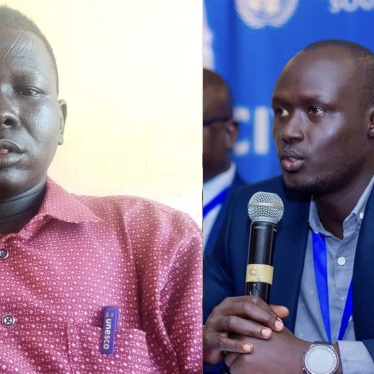Somalia continues to face armed conflict in large swathes of the country and an ongoing human rights and humanitarian crisis.
International focus on the political process should ensure respect for basic rights and the protection of civilians is central to the Somali government’s state-building efforts. So far concrete improvements for civilians, especially the most vulnerable communities, has been limited.
The Islamist armed group Al-Shabab continues to target civilians, including in government-controlled areas. According to the United Nations, recruitment of children primarily by Al-Shabab but also by the Somalia National Army and clan militia has significantly increased over the last year.
Reports of abuses by AMISOM and other foreign forces continued. In July Ethiopian forces indiscriminately killed 14 civilians during an operation against Al-Shabab in Somalia’s Bay region. Measures at the disposal of AMISOM and troop-contributing countries to improve oversight and accountability, including civilian casualty tracking and a response cell, have often been overlooked.
Over one million people are internally displaced. This year, tens of thousands of civilians have been newly displaced from military operations against Al-Shabab, clan fighting, as well as forced evictions. Many are living in unsafe camps in the country’s main towns where they face serious abuses and where their essential needs are not met.
Sexual violence remains a significant risk, particularly for displaced women and girls. The expert’s report highlights the need for those in power to tackle stigma surrounding rape and create an enabling environment for the prosecution of sexual violence.
Accountability for grave abuses is largely non-existent. The government has relied on the national intelligence agency, which has no law enforcement mandate and has repeatedly flouted due process rights, and a military court, which administers justice in proceedings that fall short of international fair trial standards, tries civilians, and imposes the death penalty. In June, Puntland’s military court also reportedly sentenced a number of children to death for their alleged involvement with Al-Shabab.
Despite this dire reality, much of the crisis remains hidden. In government-controlled areas, journalists who try to report on pressing issues such as security and political processes face threats and harassment from all sides. Since 2014, at least 11 journalists have been killed yet little is being done to investigate these killings, with the government only investigating and prosecuting a handful of attacks on journalists attributed to Al-Shabab.
Human Rights Watch urges the independent expert and the UNSOM Human Rights Unit to more regularly and publicly report on the human rights situation and abuses by all parties to the conflict. Given the gravity of the violations of international law in Somalia, Human Rights Watch reiterates its call for a mechanism to document serious international crimes committed by all sides throughout Somalia’s conflict and recommend measures to improve accountability.





